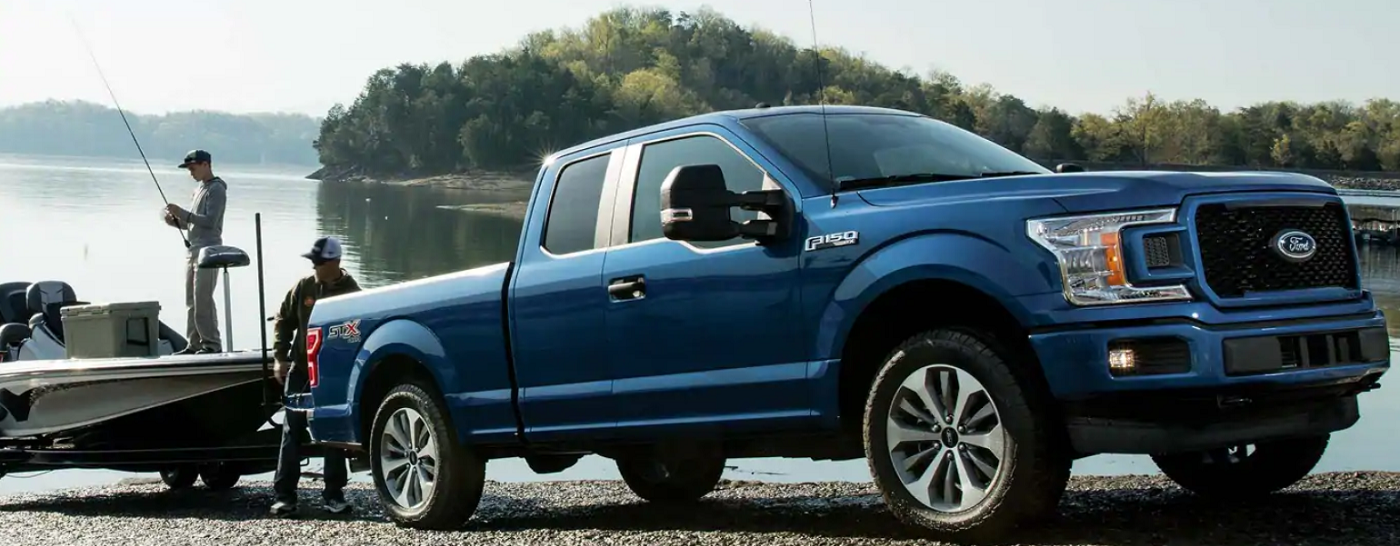
Towing Capacity Guide- Meaning, Goal, and How to Increase It
Before hooking up a trailer or buying a trailer hitch, you must consider your vehicle’s towing capacity. All vehicles have a maximum towing capacity provided by the manufacturer. The number is written in the form of pounds that a particular vehicle can carry using a specific configuration. This given capacity is an indicator of how a vehicle can handle the weight of the added load. There should be enough horsepower in the engine to be able to move a trailer, as well as, brakes need to be powerful enough to stop the vehicle properly.What is Towing Capacity?
Towing capacity is the maximum weight that a truck/van/SUV/RV or car can tow. It’s specified by the vehicle and can usually be found in the owner's manual. Always follow the manufacturer's designated towing capacity to prevent damage your vehicle. It can be particularly important when acquiring certain types of vehicles, especially commercial ones. Many elements determine towing capacity, such as: horsepower, torque, engine configuration, axle ratio, frame design, hitch-to-car mounting, tire load ratings, suspension load ratings, transmission and oil cooling equipment, brake size, and electrical systems.Towing Capacity Terms
Like in any niche, these expressions help to understand the language commonly used to explain a particular topic. There’re several terms for towing that need to be understood.- GVW (Gross Vehicle Weight) – Total weight of the driver, passengers, cargo, vehicle components, and accessories;
- GVVWR (Gross Vehicle Weight Rating) – Maximum allowable weight of a vehicle, including the vehicle, passengers, load, and the fuel;
- GTW (Gross Trailer Weight) – Total weight of the trailer including all cargo;
- GTWR (Gross Trailer Weight Rating) - Maximum weight recommended for the trailer and its load;
- GCW (Gross Combination Weight) – Total weight of the vehicle and trailer + driver, passengers, cargo, and loads of both vehicles;
- GCWR (Gross Combined Vehicle Weight Rating) – Maximum recommended gross weight of the trailer and the vehicle, plus the driver, passengers, cargo, and contents of both vehicles.
- Curb Weight – Weight of a vehicle or a trailer including all standard equipment, before taking on any person or personal cargo;
- Dry Weight – Weight of a vehicle or trailer containing standard equipment without fuel, fluids, cargo, occupants, or optional equipment;
- Cargo Weight – Weight of all items added to the curb weight of the vehicle or trailer;
- Tongue Weight – Weight pressing down on the hitch ball by the trailer;
- Pin Weight – Weight pressing down on the fifth wheel hitch by the trailer.
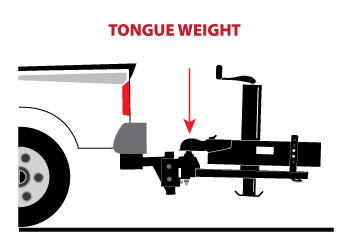
Read More
- Motor Oil Explained
- GVWR - Definition, Purpose and How to Determine Gross Vehicle Weight Rating
- Payload Capacity - How to Get Most Out of Your Truck
- CNG Cargo Vans: Eco-Friendly
- Fleet Management Software - Benefits and Best Solutions
- 5 Warning Signs Your Car Needs Maintenance
- Why Buying Ex-Fleet Vehicles Is a Good Idea
- Pickup Truck or a Cargo Van
How to Increase Towing Capacity
The capacity can be increased by making certain adjustments. Before you make any change, read the next few tips: 1. Find the Difference - Calculate the weight the truck can currently tow. Then, determine the amount you want to pull. The difference in tow weights guides you as you make modifications to the vehicle. If you add 1,000 to 2,000 pounds more than a vehicle specifies, you’ll need a different truck. Pulling anything over what the truck’s manufacturer recommends is dangerous, and thousands of pounds are way too much. If you’re going to increase truck towing capacity by a smaller amount, you may be able to pull it off through some modifications. 2. Don’t Overdo - Pay attention to your truck if you try to tow the heavy load. If you decide to pull too much weight, you risk damaging your vehicle, and potentially a load also. 3. Upgrade Performance - To help the truck pull a heavier load, you’ll have to upgrade its performance. Adding a better exhaust system is a great way to do upgrade performance. An upgraded exhaust system matched with new air filters will improve your vehicle’s towing ability. To boost your horsepower and torque, purchase and install a new CPU unit4. Change the Braking System - One of the most important things to consider when towing a load is the braking system. If a truck isn't able to stop when pulling its load, there will be serious consequences. Therefore, you should seriously consider upgrading your truck’s brake pads and rotors if you’re pulling a heavier load. It’ll increase a truck’s potential to stop. Adding a trailer brake controller is imperative, also. That way you’ll have control over the vehicle’s brakes, along with the brakes on the trailer.
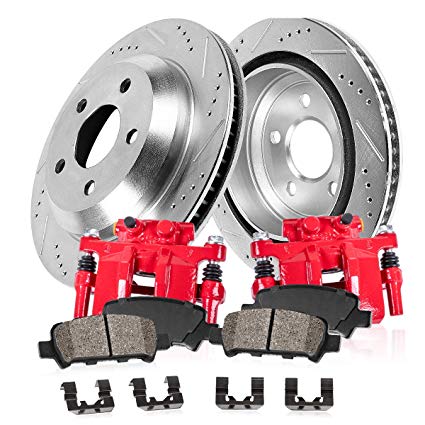
5. Use the Right Hitch - A hitch upgrade makes a difference in the vehicle towing capacity. Choose a hitch that’s right for the truck, load, and meets all safety considerations. 6. Enhance Suspension Capability - An improper suspension can cause major safety issues. Riding up, dragging, and other issues need to be avoided, so ensure you have proper suspension. You can fix a vehicle’s suspension in two ways. Either replace truck’s entire suspension system or replace the springs. Adding air suspension to a truck will give better control as you tow. 7. Increase Radiator Size - Build the towing capacity by installing a new radiator. Getting a larger one helps you tow bigger loads. New lubricant for the transmission and engine oil may help as well. A larger radiator won’t actually improve your ability to tow. But it’ll make that engine cool down quicker, which will help when you’re putting more strain on the engine.
How to Calculate Towing Capacity
To tow a trailer of any type safely and legally, you need to determine the truck towing capacity. The calculation can be done with info from the vehicle data tag on the driver's doorpost. Follow these 3 steps. Step #1 - Find the truck data tag on the driver's door post and note the GWR. Step #2 - Determine the loaded weight, with passengers and fuel, of the vehicle. It's most accurate by weighing the vehicle on a public scale. It can be found at truck stops and some moving companies. If a scale can't be found, estimate the weight by adding the curb weight of the vehicle and all passengers and cargo.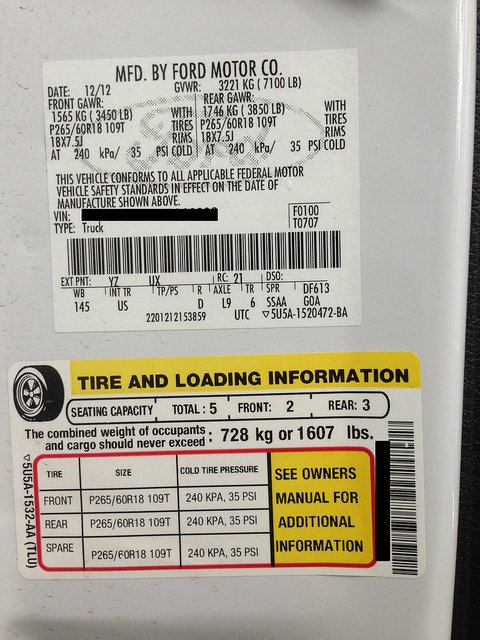
Step #3 - Subtract the loaded weight of the vehicle from the GCWR rating of the vehicle. The resulting digit is your towing capacity. Keep the weight of the trailer under this number to be safe and legal. Weighing the trailer when fully loaded is the most accurate method.
How Much Can My Truck Tow?
Any truck can tow a certain amount of weight if it's connected to the load and then appropriately operated. But how much can they pull safely? Avoid towing a large, heavy camper, of any type, with a small under-powered truck, or over-load a vehicle with excessive weight. These extreme conditions cause serious damage to the towing vehicle and even to the trailer, but they also could put you and anyone else on the highway in danger. The problem for so many of RVers, whether an expert or a novice, is that they often don't know how to calculate the actual and safe weight limits that their vehicle can tow. The factors you need first to determine are:- State's rules for towing;
- Camper's weight (GVWR and its real weight);
- Towing vehicle's weight;
- The towing capacity specifications of the vehicle;
- The weight the tow hitch can handle.
What Happens if you Exceed Towing Capacity?
Here’re the things that could happen if you surpass the towing capacity:- You could cause transmission issues as the truck fails to get enough lubrication and overheats while straining;
- There’s the possibility the trailer could sway, which means it moves uncontrollably and could cause an accident;
- You won’t be able to brake nearly as quickly as usual. All that extra weight behind the vehicle is hard to stop suddenly. It again puts you at risk for accidents with other traffic participants.
Towing Safety
If you’ve done your math and everything you’re towing/hauling is under the GCWR, then it’s time to start the towing. There’re several factors when hooking up a load that apply to everything (trailer, camper, or boat).- Check the hitch and ball – ensure you have the proper load capacity, since hitches and balls come in separate classes with different maximum weights;
- Weight-distributing hitch – mandatory for loads more than 5,000 lbs. Check your owner’s manual for more info;
- Check lights – check the brake lights, turn signals, and hazards;
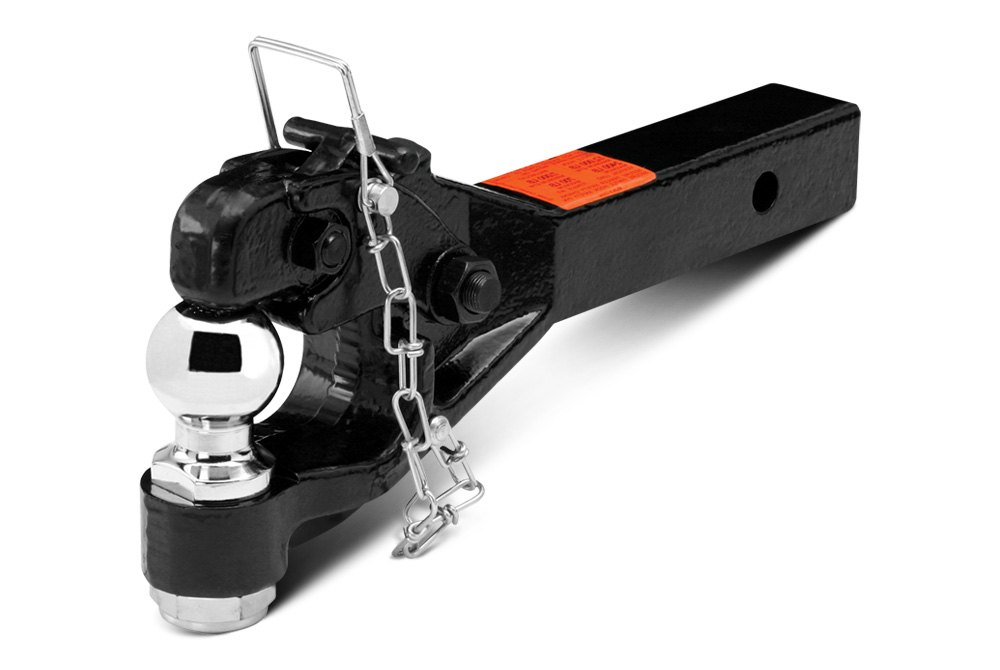
- Hook up to ball completely – when putting a trailer hitch on a ball ensure the hitch falls entirely on the hitch and it isn’t loose. Also, ensure you clamp it down entirely and place a pin in the hitch to prevent from popping free;
- Cross chains for safety - after hooking up the hitch, hook up the chains by crossing them. It’s the last resort for the hitch if something goes wrong. It provides you two benefits – if the hitch comes free, it’ll land on the chains and not on the sidewalk; plus, on tight turns the chains will be equally used instead of putting all the pressure on the outside chain;
- Level the load – visually stand or use the level to check the weight. If required, adjust items until the trailer is sitting well. If the ball and hitch is considerably lower, find a new ball setup that equalizes the load;
- Tires – check the tire pressure and wear/tear of the tires.
